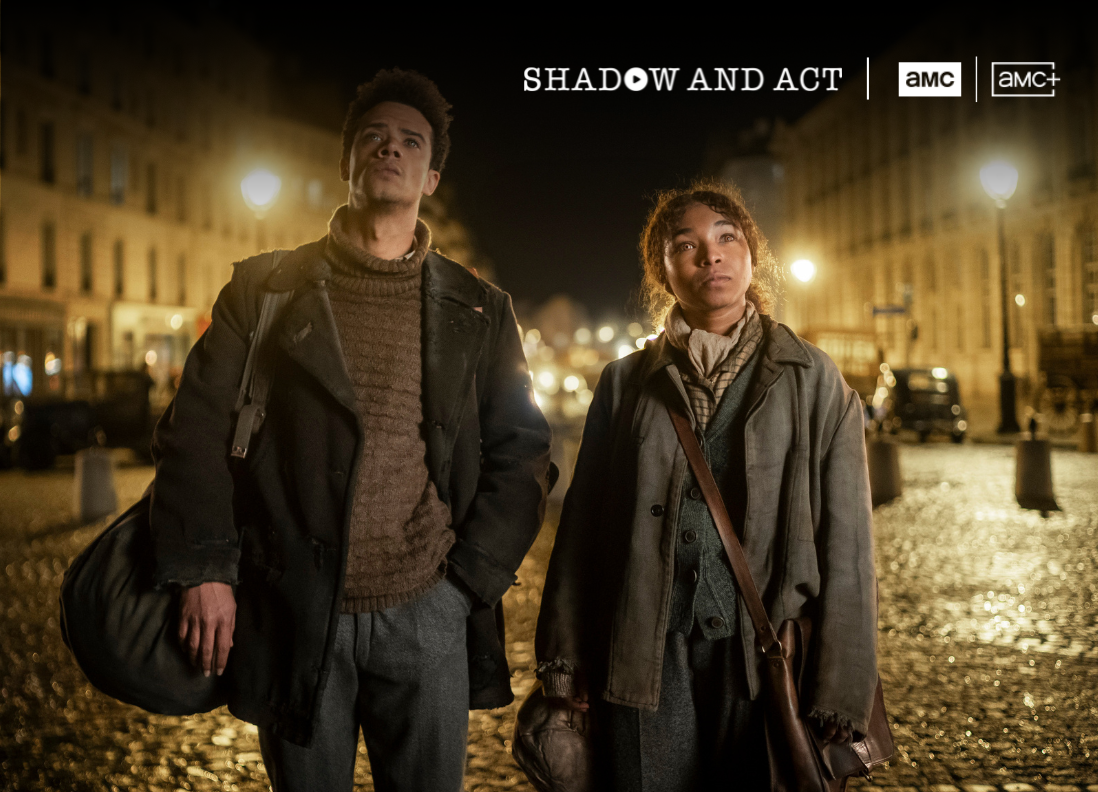Meet Two Of The Many Reasons Why You Should Be Watching AMC’s ‘Interview with the Vampire’

- Oops!Something went wrong.Please try again later.
- Oops!Something went wrong.Please try again later.
In case you missed it, last year AMC brought Anne Rice’s classic Interview with the Vampire to small screens, putting a fresh, multicultural spin on the 1976 novel. If you were a fan of the 1994 film that brought Rice’s work to a new level of pop culture prominence, your chance to get to know Louis, Claudia and Lestat even more intimately has finally arrived.
If, on the other hand, you’ve spent the past 30 or so years wishing for a visual representation drawn from a closer adaptation of Anne Rice’s debut, it’s your time too, baby!
Don’t take our word for it though! Ask Jacob Anderson who plays our beloved eternal tortured soul, Louis, and Delainey Hayles, who steps into the role of Claudia for the show’s upcoming second season.
While Jacob vaguely remembers the movie being a thing when he was a teenager, he didn’t read the first two books in Rice’s The Vampire Chronicles series until after he had read the pilot. And by no means did that put him at a disadvantage.
“The writing on the show is so lyrical and it’s just beautifully, beautifully organized. And I was like ‘What is this?’” Jacob said. “I wanted everybody to know more, just based on that first episode. So I was very shocked when I started reading the books because they were also very lyrical, and very beautiful, and descriptive. But Louis is very different.”
One of the most obvious differences is the way in which Louis presents in the world. Unlike the original screen adaptation, which found Brad Pitt’s version of the character hinting at wanting an emotional relationship with Lestat and, well, white; Jacob’s portrayal of Louis is part of New Orlean’s free Black upper class when we meet him, and openly gay. To the viewers at least.
Throughout his journey in season one of the show, each of the cities in which Louis’ stories take us allow him to thrive or struggle through different parts of his identity.
“They actually say quite a lot about where he is and his mindstate,” Jacob explains about the settings. “There is a real relationship between that. New Orleans is his home, but it’s also this place where he has to code switch and exist in different spaces. He has to consciously change himself. He’s not comfortable with who he is, even though he’s at home.”
The series then juxtaposes Louis and Claudia’s profound personal loss and trauma with postwar Eastern Europe before bringing them to France, where they find a freedom of sorts.
“Paris kind of represents the promise of the future,” Jacob adds. “And this idea that as Black vampires it’s like, this is a place where we’re not going to be subjected to American racism and violence. We can come here and be treated as citizens. But also there’s hostility. It’s like you can come here and you can be exceptional. And if you’re not exceptional, or you don’t want to toe the line, then you can leave.”
The version of Louis that audiences left off on at the end of season one, the one we’re set to see much more of in season two, is Louis in Dubai, hiding among an almost secret society of wealthy Vampires.
“I think that penthouse is like a prison,” says Jacob. “It’s a place where a vampire can hide, because it’s up in a tower. It’s also Rapunzel. It’s a place where rich people can operate and sort of keep being rich on and on and on. But it’s also like there’s something soulless particularly about that apartment. There’s something that feels very anonymous and unknowable about Dubai in our shots and that’s kind of what Louis is in the interview.
“Yeah, the city is very important to Louis’ psychology,” he concludes. “And San Francisco is just like hedonism and chaos.”
With Delainey stepping into the role of Claudia, fans get an even better opportunity to see the character’s metamorphosis post… that-thing-we-won’t-tell-you-if-you-don’t-already-know. But it won’t be as sharp of a transition as many might expect.
“I had watched the series lots and lots of times,” she says. “And I had the book with me at the same time, so I was kind of going back and forth between the two to understand the differences between the show and the book. And I think Anne Rice’s writing is so descriptive that it was kind of easy for me to get an idea of Claudia. And the rest was me experimenting with Jacob and Sam [Reid, who plays Lestat] and the cover and so it was yeah, it was a lot of fun.”
While the restructured cast instantly found their flow, the experience wasn’t all sunshine and rainbows for Delainey. But that doesn’t mean it wasn’t a great experience either.
“I think finding Claudia was quite therapeutic in a way because I think she’s quite an angry soul,” the actress explains. “And I don’t think I’ve ever carried that much anger in me. But it felt quite nice in a way.”
Ultimately, the aspects of humanity that each of the vampires portrayed in this series are the very thing that allow AMC’s Interview with the Vampire to bridge introspection with escapism.
“The thing about this show that was the biggest surprise for me in the beginning is this: If you are a person who is connected to your own emotions, and questions your own humanity, the place that you’re most likely to find that, ironically, is a show about monsters,” Jacob says. “It is very human, with a lot of feelings, and they’re all out in the open. So if that’s your thing, then welcome. Come in.”

